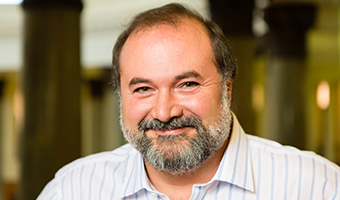The ethics of student digital publication
Tuesday 9:00-10:30 (1), Grainger Suite
Type: Short paper
Theme: Students as users and co-creators
#oer14 #abs92Authors
Mr Antonio Martinez-Arboleda, University of Leeds, [email protected]Abstract
IntroductionStudents have become authors or co-authors of research-based digital resources, including Open Educational Resources, as part of their course work in Higher Education in the UK and beyond. The publication of digital resources by students as part of their formal education, however, raises a number of ethical questions. Publication is a fundamental manifestation of one's freedom to express oneself that cannot be relinquished. Moreover, the World Wide Web is a space beyond the safe boundaries of a traditional learning situation.
Methods
In the year 2012, as part of the OpenLIVES project, a course on Oral History and Spanish migration was designed at the University of Leeds. The module required the production of audio documentaries by students, making use of extracts of digitised life story interviews, some of which had been conducted by students themselves. Crucially, it also involved the publication in the HumBox and Jorum of all those digital assets. The course received excellent feedback the first time it ran and it attracted a larger cohort of new students. To date, there are already two academic publications dealing with some of its key educational principles and values, including its ethical underpinning and safeguards. In this paper presentation, the effectiveness and adequacy of the ethical framework initially proposed for this course, when ethical approval from the relevant University committee had to be sought in advance, will be discussed and evaluated in more depth by looking at the cases of several students who took the module.
Results
Students' motives to produce the work and to publish it varied during the course. The sense of satisfaction with the final product depended very much upon the feedback received. Some elements of the ethical framework can be seen as an obstacle for publication. However, the initial ethical framework for the course has proven to be extremely effective and it can be applied to almost any other discipline and type of student digital production.
Discussion
Can we introduce publication of students' work as an essential part of the course? Does it matter whether this requirement is made very explicit to students when they sign up for the course? If publication is optional, does the nature of the relationship between the student and the tutor, and between the student and the institution, invalidate students' free consent to publish? Is it educationally sound and ethical to encourage or compel the student to share the intimacies of their learning with the wider world? Can we create a two-tier classroom that divides those students who publish from those who don't? What are the editorial powers of the institution and the educator in relation to the content of the student work that is to be published? Can the nature and purpose of the work produced, the type of repository or the licence used encourage publication on ethical grounds?
References
Martínez-Arboleda, Antonio (2013). Discovering Spanish voices abroad in a digital world’. In A. Beaven, A. Comas-Quinn, & B. Sawhill (Eds), Case Studies of Openness in the Language Classroom (pp. 176-188). Dublin: © Researchpublishing. Available from http://research-publishing.net/publication/chapters/978-1-908416-10-0/MartinezArboleda_119.pdf. [Accessed 13 November 2013].Martínez-Arboleda, Antonio (2013). ‘Liberation in OpenLIVES critical pedagogy: empowerability and critical action. Caracteres. Estudios culturales y críticos de la esfera digital vol. 2 (1) (21-5-2013) Pp. 112-127. Available from http://revistacaracteres.net/revista/vol2n1mayo2013/liberation-in-openlives-critical-pedagogy-empowerability-and-critical-action/. [Accessed 13 November 2013].
Files
- Antonio Newcastle_.ppt
- LIBERATION Caracteres vol2 n1 mayo2013.pdf
- Research Project Summary Ethics.docx
Recap recording
https://www.youtube.com/watch?v=87w2gMsZHHQ&list=PLirEzjzoHKvwGjllF_-Yb2w5gsLbIKDcz&index=13
Further details
Keywords: Ethics, OER, student production, student publication, OpenLIVES, e-learning, e-assessment
Mr Antonio Martínez-Arboleda, Principal Teaching Fellow, University of Leeds
Twitter: @Toni_M_Arboleda
Twitter abstract: Students should be able to publish their coursework online under a solid ethical framework
